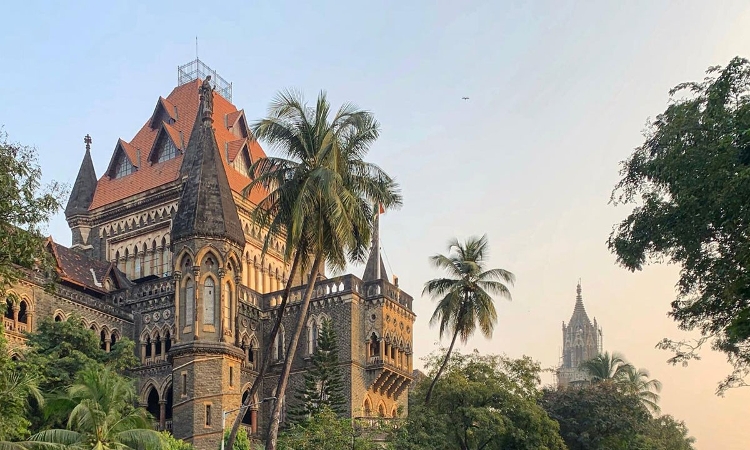- Home
- /
- High Courts
- /
- Bombay High Court
- /
- Individuals Involved In Manual Work...
Individuals Involved In Manual Work Are Considered Workmen Under ID Act, In Absence Of Direct Oversight Over Subordinates In Supervisory Role: Bombay High Court
Rajesh Kumar
2 May 2024 3:45 PM GMT
The Bombay High Court single bench of Justice Amit Borkar held that employees predominantly engaged in manual, skilled, and unskilled work, in absence of sufficient evidence of direct oversight of subordinate employees, qualify as 'workmen' under Section 2(s) of the ID Act. Brief Facts: The Management, an engineering company, was involved in manufacturing various products,...
The Bombay High Court single bench of Justice Amit Borkar held that employees predominantly engaged in manual, skilled, and unskilled work, in absence of sufficient evidence of direct oversight of subordinate employees, qualify as 'workmen' under Section 2(s) of the ID Act.
Brief Facts:
The Management, an engineering company, was involved in manufacturing various products, including furniture items. Meanwhile, the Respondent was a union registered under the Trade Unions Act of 1926, representing workers employed by the company.
The dispute arose in 2015 when the Union presented a Charter of Demands seeking enhanced wages and benefits for approximately 44 employees. Following failed conciliation, the matter was referred to the Industrial Tribunal for resolution. The Union specifically represented about 44 employees.
The Management contested the classification of the individuals as 'workmen' and requested the Industrial Tribunal to frame a preliminary issue on this matter. After due proceedings, the Tribunal, through an order dated 9th June 2021, held that 20 persons enlisted in the Annexure were 'workmen' under the ID Act. Subsequently, the Management approached the Bombay High Court and filed a writ petition against the Tribunal's decision.
The Management contended that the duties assigned to the workers were predominantly managerial or administrative, hence not falling under the definition of 'workmen'. Secondly, it argued that despite technical qualifications (ITI), the employees primarily performed supervisory or managerial functions, as evidenced by their appointment letters and annual appraisals. Furthermore, it emphasized that the burden of proving the employees' status as 'workmen' rested on them, which they failed to discharge adequately.
On the other side, the Union argued that the Industrial Tribunal correctly applied the relevant legal tests and determined that the employees were 'workmen' under the law. Additionally, it highlighted witness testimony and evidence demonstrating that the employees performed duties consistent with the definition of 'workmen'.
Observations by the High Court:
The High Court noted that there were significant amendments in the ID Act in 1956 and 1982 that broadened the definition of "workman" to encompass supervisory and technical roles. It emphasized that the determination of an individual's status as a 'workman' hinges upon the actual duties performed, irrespective of designation or salary. It held that if the nature of duties predominantly aligns with any of the categories specified in Section 2(s) of the ID Act, the individual qualifies as a 'workman'.
It held that the focus should be on the nature of the employee's duties and functions. It emphasized that while additional duties may exist, the primary purpose of the employee's role must be considered. The Tribunal, in determining the status of an employee, is tasked with scrutinizing the duties assigned and drawing a legal conclusion based on their alignment with the definition of 'workman' under the law.
Addressing the Management's contention regarding the performance of supervisory or managerial duties by the employees, the High Court considered the definition of 'supervisor'. It held that a supervisor is responsible for overseeing and correcting the work of subordinates, ensuring adherence to rules and regulations. Importantly, supervision entails overseeing human labour rather than machine operation. The High Court held that it is necessary to demonstrate that the employee oversees the work of others to qualify as a supervisor. In contrast, managerial or administrative functions entail controlling the work of others, recommending leave, and appraising work for promotion.
The High Court noted the Union, testified during the examination-in-chief that the employees engaged in a variety of tasks, including skilled, unskilled, and managerial work within the Management. Their duties ranged from operating machines to cutting and drilling wooden materials as per the instructions provided by supervisors. Additionally, they highlighted the hierarchical structure within the Management, where employees were classified into different bands, with the K-Band being the lowest. Despite the cross-examination by the Management, the High Court noted that the Union's statements remained consistent.
Moreover, it noted that nine Management witnesses provided details regarding the roles and responsibilities of K-Band employees, which emphasized their supervisory nature and the application of management evaluation processes. However, it was admitted during cross-examination that K-Band employees lacked authority in decision-making, had the lowest wages among the bands, and were not explicitly assigned duties in their appointment orders.
Based on the evidence, the High Court held that the Union employees predominantly performed manual, skilled, and unskilled work, with their primary function being machine operation. Despite assertions of supervisory roles, there was insufficient evidence to demonstrate direct oversight of subordinate employees. Consequently, the High Court upheld the Industrial Tribunal's decision that the employees represented by the Union fell within the definition of 'workmen' under Section 2(s) of the ID Act.
Consequently, the High Court dismissed the writ petition filed by the Management.
Case Title: Godrej and Boyce Manufacturing Company Ltd vs Shivkranti Kamgar Sanghatana
Case Number: Writ Petition No. 6446 of 2021
Advocate for the Petitioner: Mr J. P Cama Senior Advocate with Mr Varun Joshi a/w Mr Chetan Arvind Alai
Advocate for the Respondent: Mr. Nitin Kulkarni


